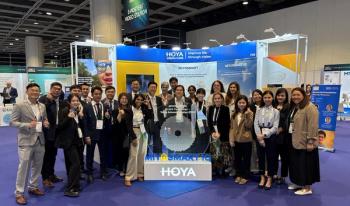
EyeCon 2025: Stopping myopia in its track starts with progression management
Mark Bullimore, MCOptom, PhD, FAAO, gave a presentation on myopia management alongside Vishakha Thakrar, OD, FAAO, FSLS, at the conference.
Mark Bullimore, MCOptom, PhD, FAAO, affiliated with the University of Houston College of Optometry and based in Boulder, Colorado, discusses myopia management in an EyeCon 2025 presentation with his former student and colleague Vishakha Thakrar, OD, FAAO, FSLS. The discussion provides critical insights into the growing public health significance of
Bullimore emphasizes the escalating concern of myopia, highlighting a crucial statistic: each diopter of myopia increases the risk of uncorrectable visual impairment by approximately 30%. This underscores the critical need for health care professionals to be well-informed and prepared to address myopia in
MORE: Dr Mark Bullimore weighs in on recent FDA marketing authorization of Stellest lenses
A key message from Bullimore is the importance of patient-centered treatment selection. He challenges the notion of a "one-size-fits-all" approach, instead advocating for personalized treatment plans that consider the individual child's lifestyle and preferences. His metaphorical comparison of choosing a myopia treatment to a mother selecting her favorite child illustrates the nuanced decision-making process. Bullimore stresses that optometrists must be proactive in 2 primary ways:
- Be knowledgeable about various myopia management options
- Be prepared to refer patients to specialists who can provide comprehensive myopia management
Practical considerations play a significant role in treatment selection. For instance, a child who frequently swims might not be an ideal candidate for soft contact lenses, while another child involved in contact sports might find them perfectly suitable. This approach ensures higher treatment compliance and potentially better outcomes.
Bullimore also highlights the evolving landscape of myopia understanding. The increasing prevalence of myopia, combined with a deeper comprehension of its long-term visual health implications, means parents are becoming more informed and engaged. Consequently, health care providers must be ready to have informed, comprehensive discussions about myopia management. The conversation underscores the need for a holistic, patient-centered approach to myopia management, emphasizing education, personalized treatment, and proactive healthcare strategies.
Newsletter
Want more insights like this? Subscribe to Optometry Times and get clinical pearls and practice tips delivered straight to your inbox.





























